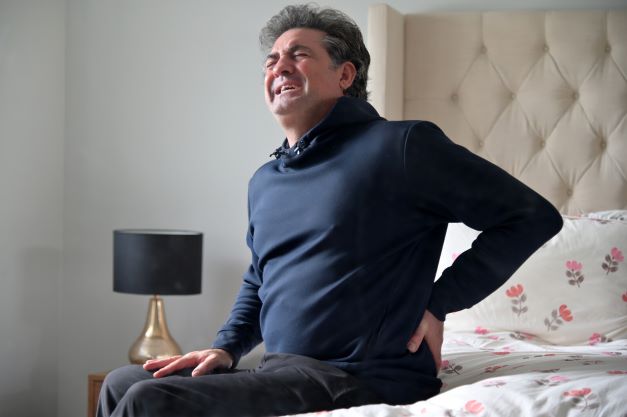Author: Erin Thomson
Have you experienced a pain in your back, side, or abdomen so intense it stops you in your tracks? If so, you may have experienced a kidney stone. Some pass on their own and others require medical attention.
Kidney stones are made up of minerals and salts that form into hard deposits inside your kidneys. These hard deposits can cause severe pain and infection if not treated. There are a few key factors to pay attention to when it comes to avoiding kidney stones.

Your Diet
“Diet can play a large role in kidney stone formation and management,” said Roger Jump III, D.O., urologist at Urological Services, P.C. “The biggest factor is hydration. We should all aim to drink a minimum of 64 ounces of water daily. Salt intake is also a huge contributor, as sodium drags calcium into the kidney, so limiting salt intake (and knowing what foods contain excess sodium) can be a major help in decreasing stone development.”
Foods your doctor may have you limit or avoid if you are prone to kidney stones could include those that cause high oxalate levels. Oxalates are naturally occurring compounds in plants that can bind to calcium as they leave the body, increasing the risk of kidney stones in some people. Examples include spinach, soy products, almonds, potatoes, beets, and dates.
Climate and Excessive Sweating
“Any activity or environment causing water loss from the body through sweating or general metabolism takes water away from urine production,” said Dr. Jump. “Those who live in hot climates or with highly active lifestyles will need to drink even more water to prevent dehydration and make up for the fluids shifted away from the kidneys. Less water for the kidneys means more concentrated urine, and more concentrated molecules which could build up into kidney stones.”
Symptoms of kidney stones include intense pain in the lower abdomen, groin, side or back, urinating more frequently or urgently, blood in your urine, and nausea/vomiting. If you also experience fever and chills, it could be a sign that your kidney stone(s) are turning into a sepsis infection.
“We have a number of different ways to treat kidney stones,” said Dr. Jump. “If prevention has failed, in only very rare cases can we make stones dissolve, the majority must be passed or removed. Treatments can involve use of shockwaves delivered through the body tissue to break up stones, passage of very small cameras into the urinary tract to remove stones or break them up with lasers, or, for very large stones, more invasive procedures to directly enter the kidney and destroy and collect stones.
“A board-certified urologist should be in charge of all stone treatments. Clearing all stones with a given treatment will decrease the risk of recurrence, but unfortunately, anyone who makes a stone is always considered at higher risk for making another one compared to those who have never suffered from kidney stones.”
For more information about urology services including specialists like Dr. Jump, click here.